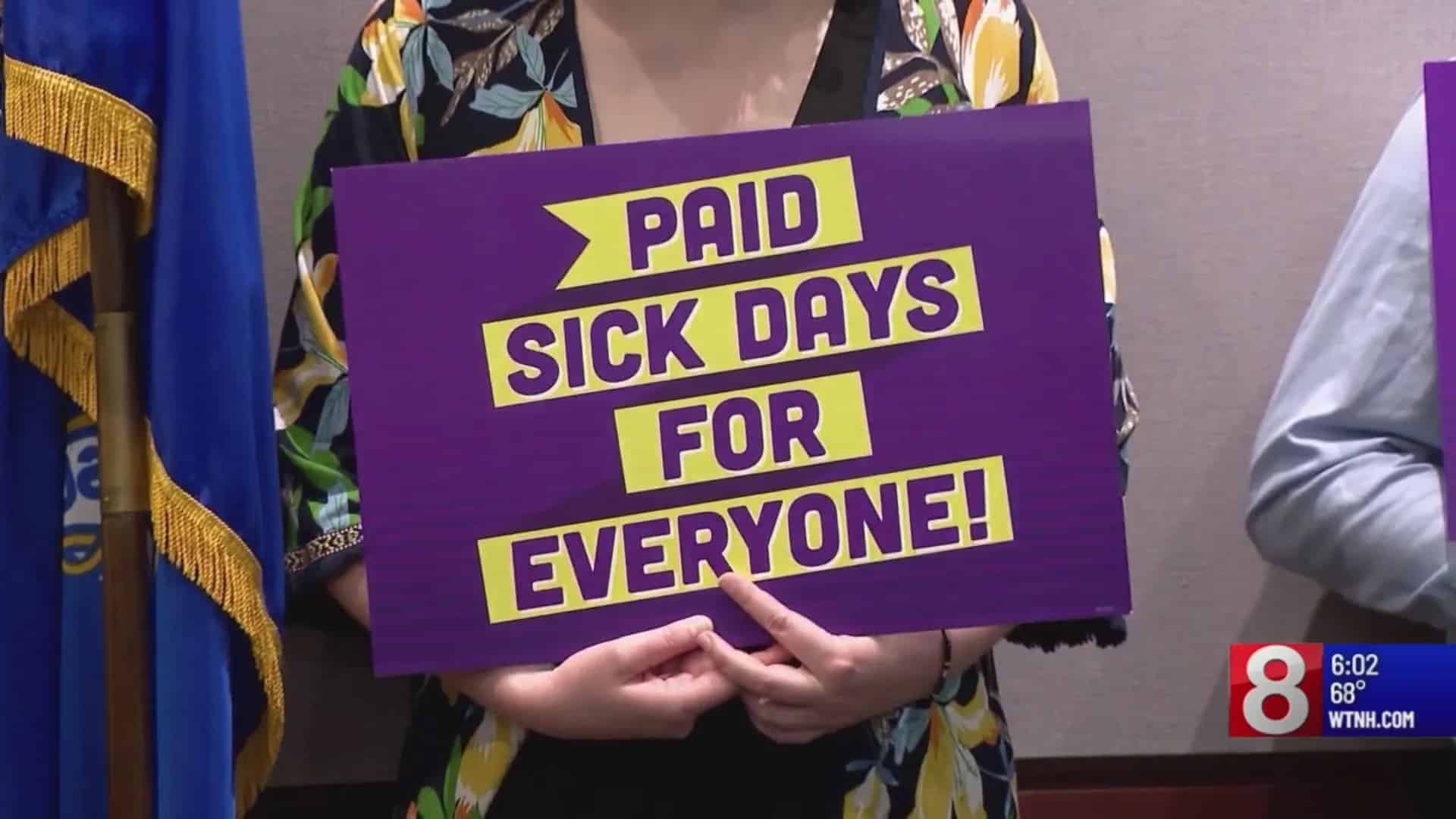Connecticut Expands Paid Sick and Safe Days

Washington (DC) – On May 21, Connecticut Governor Ned Lamont signed into law HB 5005 which will expand Connecticut’s paid sick and safe days law to cover all businesses regardless of industry by 2027. Residents will be able to use this time to care for a family members’ mental or physical illness, injury, health condition, or preventive medical care and diagnosis or for reasons related to family violence or sexual assault. The law also allows workers to care for all family members instead of limiting care to an employee’s child or spouse.
“Family Values @ Work congratulates She Leads Justice and their coalition for all of their hard work leading the movement for paid time to care on behalf of Connecticut’s hard working families. Connecticut residents will now have the ability to use paid sick and safe days to care for themselves or a chosen family member,” said FV@W Executive Director Josephine Kalipeni.
The paid sick expansion will roll out in three phrases:
- Beginning January 1, 2025, if you work for an employer with 25 or more employees, you earn one hour of sick and safe time for every 30 hours worked up to 40 hours per year.
- Beginning January 1, 2026, if you work for an employer with 11 or more employees, you earn one hour of sick and safe time for every 30 hours worked up to 40 hours per year.
- Beginning January 1, 2027, if you work for an employer with 1 or more employees, you earn one hour of sick and safe time for every 30 hours worked up to 40 hours per year.
“She Leads Justice was proud to lead the Paid Sick Days Coalition throughout the years of advocacy for passage of this strong and inclusive policy,” said She Leads Justice Executive Director Janée Woods Weber. “The expansion of Connecticut’s paid sick days law to cover all workers is a step forward toward the society we all deserve to live in. Workers, especially the women who are the primary caregivers for their families, will no longer be forced to choose between taking time to care for themselves or a family member during a time of illness and their paycheck.”